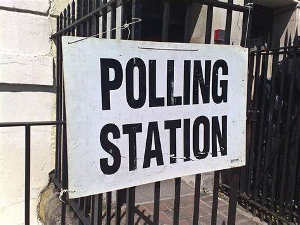Was the UK Election About The Motor Trade?

As the UK approached the 2024 General Election in July, the major political parties, Conservative, Labour, and Liberal Democrats, highlighted the motor industry as a key focus in their manifestos.
Here, we will look at the breakdown of what each party had in store for UK drivers.
Conservative Party
Prime Minister Rishi Sunak and the Conservative Party proposed a series of proposals aimed at motorists. Key points included:
Reversing the London ULEZ Expansion: The Conservatives planned to roll back the recent expansion of the Ultra Low Emission Zone in London, which has been a contentious issue for many drivers since its proposal and introduction.Limiting 20mph Speed Zones and LTNs: The party proposed imposing restrictions on implementing 20mph speed limits and Low Traffic Neighbourhoods (LTNs), which they argued could be disruptive for drivers.Opposition to Pay-per-Mile Road Tax: The party reaffirmed their stance against introducing a pay-per-mile road tax system, maintaining the current tax structures.Addressing Potholes: Funds initially allocated for the HS2 project would be redirected towards repairing and maintaining roads, addressing the ongoing issue of potholes raised by private and motor trade drivers.Pumpwatch Scheme: The manifesto also mentioned a commitment to the Pumpwatch initiative, a national scheme designed to provide real-time fuel price information to consumers.
Labour Party
Under the leadership of Keir Starmer, the Labour Party presented a forward-looking vision for the future of driving in the UK:
Reinstating the 2030 Petrol and Diesel Ban: Labour plans to revert the Conservative government’s delay of the ban on new petrol and diesel cars, bringing it back to 2030. This move aims to clarify and align with climate goals, something new and used motor trade dealers will closely monitor.Boosting Electric Vehicle (EV) Infrastructure: To support the transition to electric vehicles, Labour pledges to accelerate the rollout of EV charge points across the country, facilitating a smoother shift away from fossil fuels, something auto technicians and EV charge point installers will be monitoring.
Liberal Democrats
Ed Davey’s Liberal Democrats, advocating for “A Fair Deal,” also made significant pledges regarding the motor industry:
Enhancing EV Charging Infrastructure: The party promised to increase the number of EV charge points, including facilities for on-street parking and at petrol stations.Reducing VAT on Public Charging: A proposed cut in VAT on public EV charging to 5% aims to make electric driving more affordable and accessible.
A Balanced View
Here’s an impartial analysis of the key points from each party’s manifesto.
Pumpwatch Scheme: There is a notable absence of road casualty reduction targets, which have been missing since being abandoned 14 years ago, with pedestrian fatalities recently reaching their highest levels since the pandemic.HS2 Funding Reallocation: This funding would only cover about 3% of council-run roads in England. A long-term funding plan is required to provide councils with the stability to manage road networks effectively.Stance on Pay-per-Mile Road Pricing: Opposition to pay-per-mile road pricing raises questions about future funding plans, significantly as fuel duty revenue declines with the rise of EVs. Alternative revenue sources will be required to maintain and improve road infrastructure.Support for Electric Vehicles: The proposal to reintroduce a plug-in car grant for lower-cost EVs could make zero-emission vehicles more accessible, addressing the current high upfront costs that may deter potential buyers. While reducing VAT on public charging to 5%, aligning it with the rate for home charging could eliminate a barrier for those without home charging facilities.Fuel Price Investigation and 2030 Ban: Promoting fairness and accelerating the shift to cleaner transportation can only be positive.
Across all parties, there is a shared recognition of the need to enhance road maintenance and support the transition to electric vehicles.
Addressing essential issues for motorists and ensuring sustainable funding will be critical for achieving meaningful improvements in road safety, infrastructure, and the adoption of electric vehicles.
This entry was posted in Motor Trade News Articles and tagged legal, transport regulations on August 13, 2024.







